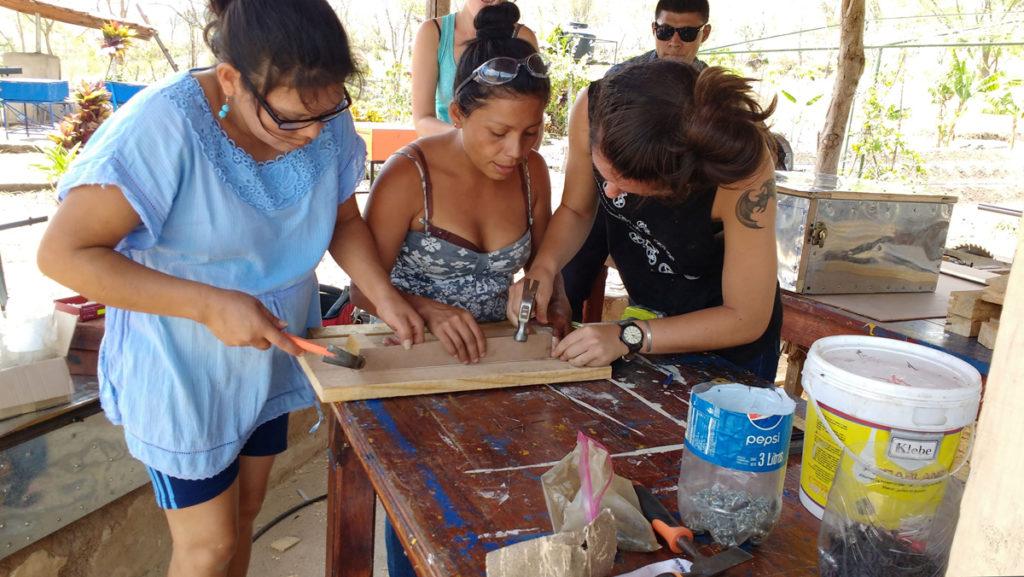Michael Smith, professor in the Department of History at Ithaca College, co-authored a chapter of a book that discussed international sustainable communities, work that was inspired by his research in Nicaragua.
The book, titled “Global Champions of Sustainable Development,” compiles examples of communities around the world that are implementing the United Nations’ 17 Sustainable Development Goals (SDG). The book was published Nov. 19, 2019.
Smith’s research for the chapter began in 2013 when he spent his sabbatical in Sabana Grande, Nicaragua, researching the local sustainable development and movements. One of his case studies promoted the work of Las Mujeres Solares de Totogalpa, which is a group that aims to advance the mobility of women by selling solar cookers.
Staff writer Alyshia Korba spoke with Smith about his research in Nicaragua, the book he contributed to and the connections between female empowerment and the environment.
This interview has been edited for length and clarity.
Alyshia Korba: What is “Global Champions of Sustainable Development”?
Michael Smith: Routledge press, based in London, is doing a series of books on the 17 U.N. Sustainable Development Goals. “Global Champions of Sustainable Development” is one of two books coming out this year with case studies from around the world about how the SDGs are being implemented.
AK: When did you begin working on this? How did you begin working with “Global Champions of Sustainable Development”?
MS: I began working on the writing of our chapter for the book in the summer of 2018. My principal co-author, Susan Kinne, and I were invited to submit a manuscript as a possible inclusion in the book. But the research for the chapter began years ago — seven years ago for me and more than 15 for Susan.
AK: Why did you choose Nicaragua for this case study?
MS: In a sense, Nicaragua chose me. The short version answer to this question is that in 2013, my family and I spent my sabbatical in Sabana Grande, the community that is the focus of the chapter. I was doing preliminary observational and participatory research into the various grassroots sustainable development efforts happening there. The projects were inspiring; the people were even more inspiring. So I crafted a proposal for a Fulbright grant to return and work with Susan and the community to collect and tell more of the history of Sabana Grande. A slightly longer answer would include the fact that according to some measures, Nicaragua is the fourth most vulnerable country to climate change in the world. What is happening there in terms of sustainable development has life and death consequences in a way that isn’t true of most of the world, at least not yet. I think we in the U.S. have a lot to learn from the people of Sabana Grande, which is part of my own reason for wanting to help tell their story.
AK: What aspect of sustainable development does your chapter focus on?
MS: The principal focus of our chapter is on SDGs numbers 5, gender equity, and 1, no poverty, though all of the SDGs are really like a giant Venn diagram with considerable overlap among them.
AK: What is Las Mujeres Solares de Totogalpa?
MS: They are a remarkable women’s cooperative founded almost 20 years ago in Sabana Grande with the goal of uniting to promote the social and economic advancement of women in the community. Their name, which translates as the Solar Women of Totogalpa, derives from the fact that the initiative they are known for around the world is the development and sale of solar cookers. They actually won a United Nations award for their work.
AK: What do you hope people learn from this case study?
MS: I really hope that readers understand how much a renewable energy project — the solar cookers — led directly to the empowerment of the women who have worked on it. The most inspiring thing about the women in the community is that they have become teachers and leaders. Some cannot read, yet they have taught college students and other visitors how to build and use these cookers — and how to be resilient, something we all need to learn as we face the unpredictable and probably quite destabilizing effects of climate chaos in the decades to come.
AK: What are the main conclusions that can be made from this case study?
MS: That the social empowerment and sustainable development go hand in hand and that we in the global North have more to learn from people who live in places like Sabana Grande than they do from us.








